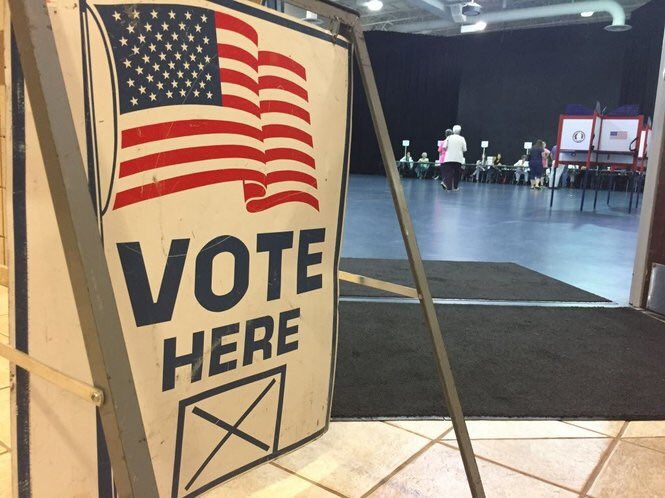The number of Latino Republicans serving in the US House in 2023 could increase by 50% after the midterm elections in November. Following the party's recruitment strategy, there was a string of summer primary victories for Latino/Hispanic candidates in some states, such as Oregon, Texas and Virginia.
The last victory of a Latino Republican candidate, Juan Ciscomani, took place on Tuesday, August 2, in southern Arizona. He moved from Mexico to the U.S. as a child and worked on border and trade issues as a top adviser to GOP Gov. Doug Ducey.
Besides Ciscomani, there are a slew of potential new members who could flip Democratic-held seats this fall. According to Politico, “The list includes Monica De La Cruz and Cassy Garcia, who are running for highly competitive two South Texas districts; Lori Chavez-DeRemer, a former mayor running for an open seat in Western Oregon; Yesli Vega, a Prince William County supervisor opposing Rep. Abigail Spanberger (D-Va.); and Michelle Garcia Holmes and Alexis Martinez Johnson, who are challenging two Democratic incumbents in New Mexico”.
Party recruiters have been increasingly committed to winning over Latino voters since the last gains in numbers by this electorate with Donald Trump. Now the objective has increasingly been to win the vote of those who are disillusioned with the Biden administration, and the search for support from this electorate spans almost every region of the country and ranges from Brazilian to Mexican and Guatemalan descent.
With the support of Cuban American voters, Latino Republicans, also of Cuban descent, were elected and gained a strong presence in South Florida. In June, the party was successful in its strategy, when the Republican deputy Mayra Flores obtained an upset special election victory in South Texas, ending nearly a century of uninterrupted Democratic control of the region. Her win offered both a model and inspiration for other Latino candidates.
“The earliest signs of momentum appeared in 2020, when Latino candidates in Miami and West Texas rode a Trump-fueled surge to Congress. Reps. Carlos Gimenez (R-Fla.), María Elvira Salazar (R-Fla.) and Tony Gonzales (R-Texas) all won seats that swung hard to the right between 2016 and 2020. […] There are currently just a dozen Hispanic Republicans in the House, compared to 30 or so Democrats”, according to Politico.
In the primaries that will take place in August and September, some Republican candidates are confident of victory: George Logan, a former state senator challenging Rep. Jahana Hayes (D-Conn.); Anna Paulina Luna, a Trump-backed veteran running for an open seat in Florida; and George Santos, the son of Brazilian immigrants who is running for an open seat on Long Island.
“Democrats, particularly in South Texas, have long warned that their party needs to step up its outreach with Latino voters, especially after Flores’ win in the June special election. […] Several Republican Latino candidates running this election year said they or their family members used to be Democrats before the party drifted left. Recruiters claim the increase in Latino candidates is an outgrowth of that movement”, according to the publication.
Rep. Tom Emmer, the chair of the House GOP campaign arm declared: “We’re offering candidates that actually not only look and sound like the district but are focused on the issues that matter most to them. They believe in family, faith and freedom, and the opportunity this country offers. And they see our colleagues on the other side of the aisle killing the American dream”.
 Foto de Tara Winstead: https://www.pexels.com/pt-br/foto/4-de-julho-dia-da-independencia-administracao-governo-8850746/
Foto de Tara Winstead: https://www.pexels.com/pt-br/foto/4-de-julho-dia-da-independencia-administracao-governo-8850746/











